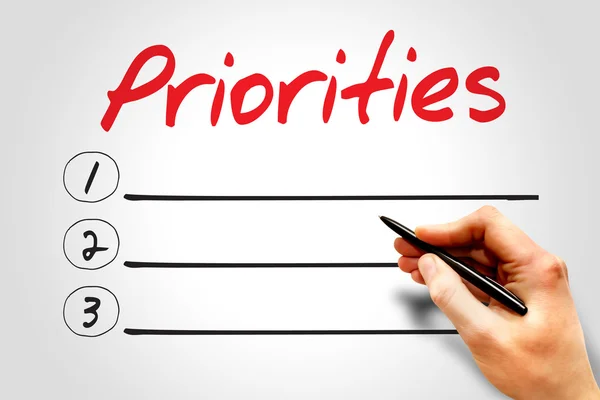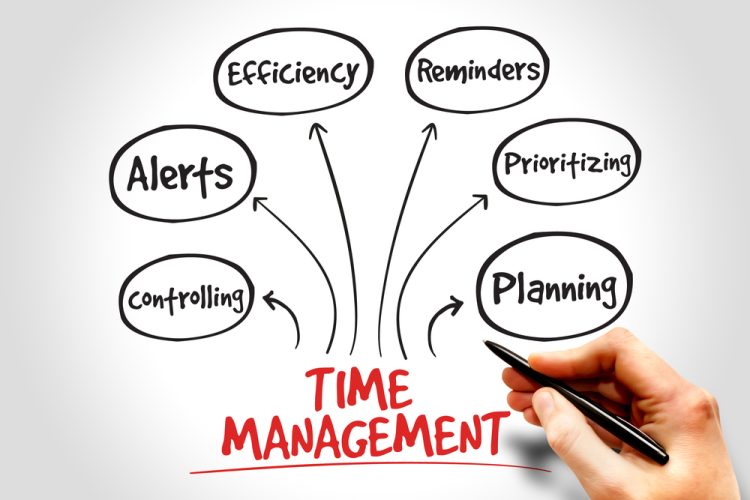Categorize Your Tasks: Once you’ve identified your goals, categorize your tasks based on their importance and urgency. Use a tool like the Eisenhower Matrix, which helps you classify tasks into four categories: urgent and important, important but not urgent, urgent but not important, and neither urgent nor important. Focus first on tasks that are both urgent and important.
Align Tasks with Goals: Ensure that your daily activities align with your larger goals. Prioritize tasks that contribute directly to achieving these goals, and be mindful of activities that consume time without adding value.
Be Realistic: When setting priorities, be realistic about what you can accomplish in a day. Overloading your schedule can lead to burnout and diminish the quality of your work. Prioritize quality over quantity.

3. Creating a Structured Schedule
A structured schedule is the backbone of effective time management. It helps you organize your day, allocate time for different tasks, and ensure that nothing falls through the cracks.
-
Use a Planner or Digital Calendar: Whether you prefer a traditional paper planner or a digital calendar (Google Calendar), use a tool that works for you. Schedule your tasks, classes, work hours, and personal time. Include both short-term tasks (like daily assignments) and long-term projects (like research papers).
-
Block Time for Key Activities: Time blocking is a technique where you allocate specific blocks of time to different activities throughout your day. This method helps you focus on one task at a time, reducing distractions and improving productivity.
-
Include Breaks: Don’t forget to schedule breaks throughout your day. Taking short breaks between tasks can help you recharge and maintain focus. Use techniques like the Pomodoro Technique, where you work for 25 minutes and then take a 5-minute break.
-
Be Flexible: While a structured schedule is important, it’s also essential to be flexible. Unexpected events or changes may require you to adjust your schedule. Build in buffer time to accommodate any unforeseen interruptions.

4. Eliminating Distractions
Distractions are one of the biggest obstacles to effective time management. Identifying and eliminating these distractions can help you stay focused and make the most of your time.
-
Identify Your Distractions: Start by identifying the things that distract you most often—whether it’s social media, texting, or background noise. Being aware of these distractions is the first step to overcoming them.
-
Create a Focused Environment: Set up a dedicated workspace that is free from distractions. Keep your desk organized, minimize clutter, and eliminate any potential distractions from your environment.
-
Use Technology Wisely: Technology can be both a tool and a distraction. Use apps that help you stay focused, such as website blockers that prevent you from accessing distracting sites during work hours. On the flip side, avoid multitasking on your devices, as it can decrease productivity.
-
Practice Mindfulness: Mindfulness techniques can help you stay present and focused on the task at hand. Practice deep breathing or short meditation sessions to clear your mind and improve concentration.

5. Procrastination: Overcoming the Time Thief
Procrastination is a common challenge when it comes to time management. However, with the right strategies, you can overcome procrastination and stay on track.
-
Break Tasks into Smaller Steps: Large tasks can be overwhelming and lead to procrastination. Break them down into smaller, manageable steps, and focus on completing one step at a time. This approach makes tasks feel less daunting and more achievable.
-
Set Clear Deadlines: Self-imposed deadlines can be a powerful tool for combating procrastination. Set specific deadlines for each task, even if they aren’t officially due, to create a sense of urgency and keep yourself accountable.
-
Reward Yourself: Use a reward system to motivate yourself. After completing a task or reaching a milestone, reward yourself with something you enjoy, such as a treat, a short walk, or a favorite activity.
-
Visualize Success: Visualization can be a powerful motivator. Picture yourself successfully completing your tasks and achieving your goals. This positive imagery can boost your motivation and help you take the necessary steps to get started.

6. Reviewing and Adjusting Your Approach
Effective time management is an ongoing process that requires regular review and adjustment. By reflecting on your progress, you can identify what’s working and what needs improvement.
-
Weekly Review: At the end of each week, review what you’ve accomplished. Assess how well you managed your time, what tasks you completed, and any challenges you faced. Use this review to adjust your approach for the coming week.
-
Adapt to Changes: Life is unpredictable, and your schedule may need to change to accommodate new priorities or responsibilities. Be willing to adapt and make changes to your time management plan as needed.
-
Seek Feedback: If you’re struggling with time management, seek feedback from peers, mentors, or professors. They can offer insights and suggestions to help you improve your approach.
-
Celebrate Successes: Finally, don’t forget to celebrate your successes. Acknowledging your achievements, no matter how small, can boost your confidence and motivation, making it easier to stick to your time management plan.

Conclusion
Time management is a critical skill that can greatly enhance your productivity, reduce stress, and help you achieve your goals. By setting clear priorities, creating a structured schedule, eliminating distractions, overcoming procrastination, and regularly reviewing your approach, you can take control of your time and make the most of each day.
Remember, effective time management isn’t about being busy all the time—it’s about being purposeful with how you use your time. With the right strategies and a commitment to continuous improvement, you can unlock your full potential and achieve success in both your academic and personal life.
So take charge of your day, make the most of your time, and watch as you accomplish more than you ever thought possible.







